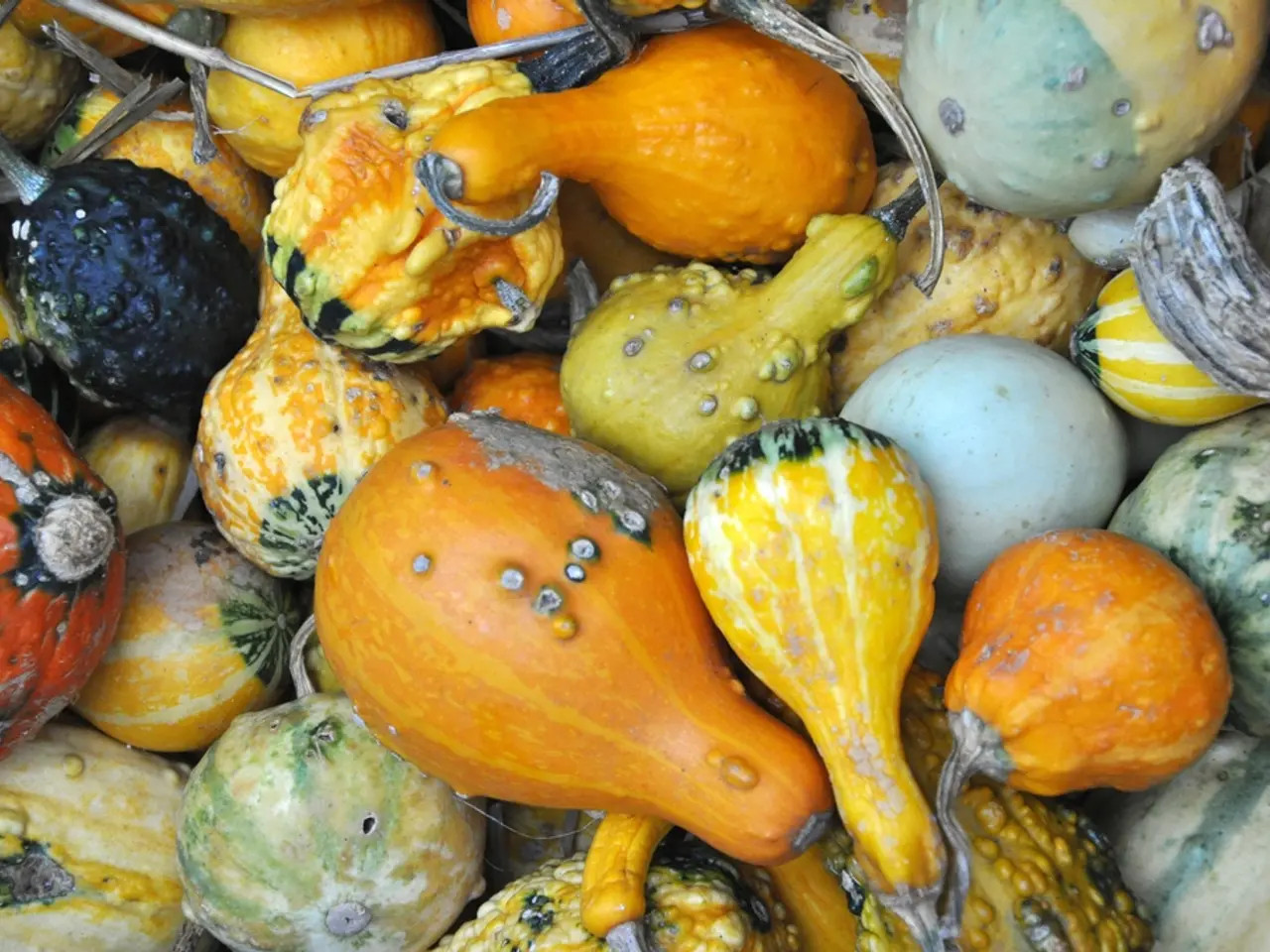Enhancing Blood Circulation: Exploring Dietary Options and Beyond
In the pursuit of a healthier heart, focusing on foods and habits that promote improved blood circulation is key. A balanced diet rich in certain foods can help widen blood vessels, reduce inflammation, and support vascular health.
Beetroot, with its high nitrate content, stands out for its ability to dilate blood vessels and boost oxygen flow, enhancing circulation. It also contains betacyanin, which lowers homocysteine, an amino acid harmful to blood vessels. Garlic, another beneficial food, contains allicin, which helps widen blood vessels and reduce inflammation, aiding blood flow and overall vein health.
Leafy greens, such as spinach, asparagus, broccoli, and lettuce, provide essential magnesium and fibre, crucial for managing blood circulation and preventing constipation that can strain veins. Berries, citrus fruits, and flavonoid-rich foods like apples, cherries, and blueberries contribute antioxidants and flavonoids that improve vein function and reduce pressure.
Chia seeds offer fibre that reduces inflammation and swelling, improving heart and digestive health. Ginger aids circulation by dissolving fibrin, a protein that hardens veins.
Staying well hydrated can help increase oxygen levels in the blood and improve circulation. It's recommended to drink plenty of water throughout the day, especially during physical activity or in hot weather.
A diet rich in fruits, vegetables, whole grains, oily fish, and nuts can help improve circulation. Fish, particularly those high in omega-3 fatty acids, help prevent plaque from building up inside arteries and may also prevent blood clots, reduce blood pressure, and increase HDL cholesterol.
However, it's important to limit the consumption of red, processed, or fatty meat due to its high saturated fat content. The World Health Organization recommends a daily intake of fewer than 5 grams of salt for adults, as excess salt can lead to high blood pressure, cardiovascular disease, stroke, and coronary heart attack. Quitting smoking can also significantly improve circulation.
Excess amounts of added sugar in the diet can lead to diseases such as high cholesterol, cardiovascular disease, and high blood pressure. The Society for Vascular Surgery recommends avoiding lamb or poultry with the skin intact due to high saturated fat content.
Red hot peppers, containing capsaicinoids, may improve blood vessel health and lower the risk of high blood pressure, diabetes, and hardening of the arteries. Garlic may improve blood vessel function, but further research is needed to confirm its benefits.
Lastly, regular exercise helps increase circulation, as it pumps more oxygen through the body and strengthens the heart. A flavanone-rich citrus fruit drink can increase blood flow to the brain and improve performance in cognitive tests, while pomegranate juice can reduce plaque buildup in the arteries and lower blood pressure, and its antioxidant effects may improve overall cardiovascular health.
In summary, a diet rich in these foods supports better blood flow, vein health, and cardiovascular function through multiple mechanisms including vessel dilation, anti-inflammatory effects, and vascular protection. By incorporating these foods into your diet and adopting a healthy lifestyle, you can significantly improve your heart health and reduce the risk of cardiovascular disease.
[1] NutritionFacts.org, "Beetroot Juice: The Ultimate Performance Enhancer?" [Online]. Available: https://nutritionfacts.org/video/beetroot-juice-the-ultimate-performance-enhancer/
[2] NutritionFacts.org, "Garlic: A Natural Blood Thinner?" [Online]. Available: https://nutritionfacts.org/video/garlic-a-natural-blood-thinner/
[3] NutritionFacts.org, "Leafy Greens: The Ultimate Blood Pressure Lowering Food?" [Online]. Available: https://nutritionfacts.org/video/leafy-greens-the-ultimate-blood-pressure-lowering-food/
[4] NutritionFacts.org, "Berries: The Ultimate Heart-Healthy Food?" [Online]. Available: https://nutritionfacts.org/video/berries-the-ultimate-heart-healthy-food/
- Eating foods like beetroot and garlic, known for their ability to dilate blood vessels and boost oxygen flow, contribute to improved heart health.
- Hypertension, a medical condition characterized by high blood pressure, can be managed with a diet rich in magnesium and fiber, found in leafy greens, fruits, and seeds.
- Certain foods, such as berries, citrus fruits, and flavonoid-rich foods, provide antioxidants and flavonoids that help improve vein function and reduce pressure.
- Chia seeds and ginger offer beneficial properties for heart health, as they reduce inflammation and swelling and improve circulation.
- Consuming plenty of water and staying hydrated aids in increasing oxygen levels in the blood and promoting improved circulation.
- A healthy diet rich in fruits, vegetables, whole grains, oily fish, and nuts can prevent plaque buildup in arteries, reduce blood pressure, and increase HDL cholesterol.
- Limit the consumption of red, processed, or fatty meat due to its high saturated fat content, and avoid excess salt and added sugar in the diet to prevent cardiovascular disease.
- Quitting smoking and regular exercise can significantly improve circulation and overall heart health, while flavanone-rich citrus fruit drinks and pomegranate juice may further contribute to better cardiovascular health.
- Incorporating these heart-healthy foods, alongside a balanced lifestyle, can decrease the risk of cardiovascular disease and promote better blood flow, vein health, and cardiovascular function. [References in brackets: 1, 2, 3, 4]




